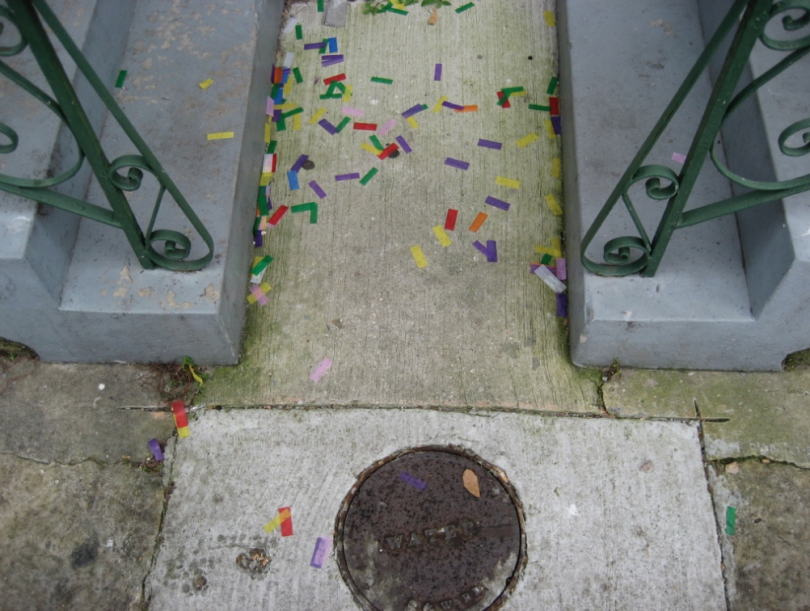1. Turn off the tap while you brush your teeth
You’ll conserve up to 5 gallons of water per day. Throughout the US, the daily savings could add up to more water than is consumed everyday in all of New York City.2
2. Buy locally
Not only is it good for the local economy, it will save energy because products haven’t traveled across the globe to get to you3
3. Bring your own reusable water bottle filled with filtered water
If you take reusable water bottles when you go to the gym/school/work, you could save an average of $200 per year as well as 14 pounds of plastic.2
4. Use good ventilation and balanced humidity
Ensure you have good ventilation and balanced humidity in your home to prevent the growth of mold and mildew which can be harmful to your health.3
5. Arrange furniture to take advantage of natural light
Place desks and reading chairs next to windows to cut down on the need and use of supplemental, artificial light during the day.1
6. Dust and change your light bulbs
Dust your light bulbs and change them – to compact fluorescent – only when they burn out. You’ll increase energy efficiency and light output.2
7. Don’t ask for ATM receipts
If everyone in the US refused their receipts, it would save a roll of paper more then two billion feet long or enough to circle the equator 15 times.2
8. Trim down on the red meat
Since it takes more fossil fuels to produce red meat than fish, eggs and poultry, switching to these foods will slim your CO2 emissions by 950 pounds. 4
9. Check air conditioner filter
Air conditioner filters should be cleaned and replaced monthly to help the unit run at peak efficiency. If you have an outdoor unit, make sure its coils are unobstructed by debris, plants or shrubs.1
10. Buy products in concentrate
Buy products in concentrate when available. You’ll use less, making your cost per use much lower than it would be with a non-concentrated brand, and you’ll be consuming less packaging.1
11. Avoid the use of PVC
Avoid the use of polyvinyl chloride (also known as PVC or vinyl) in your home. The entire life cycle of products made from PVC pollutes the environment and your home. PVC items include shower curtains, flooring, even some children’s toys.3
12. Washing your car in a commercial car wash
Washing your car in a commercial car wash is better for the environment than doing it yourselfCommercial car washes not only use significantly less water per wash – up to 100 gallons less – but they often recycle and reuse rinse water.2
13. Keep your refrigerator full
Food retains cold better than air does, so a near-empty fridge is working much harder to cool its contents. Don’t overstuff your fridge either. Air circulation is needed to cool and control humidity.1
14. Considering buying a laptop
Are you shopping around for a new computer? Consider buying a laptop. Laptops use 50% of the energy used by a typical desktop PC when plugged in and just 1% of the energy when running on batteries.1
15. Caulk, weatherstrip and insulate your home
If you rely on natural gas heating, you’ll stop 639 pounds of CO2 from entering the atmosphere (472 pounds for electric heating). And this summer, you’ll save 226 pounds from AC use.4
16. Wash fruit in a bowl of water
Fill a bowl with cold water and wash fruit and vegetables this way, instead of letting water from a faucet run over them.1
17. Do not throw out your toxic household wastes
Do not throw out your toxic household wastes, such as paint, paint thinner and car fluids, in the garbage or down the drain. Check with your local facilities for proper disposal and avoid these products in the future.3
18. Store your food in glass or porcelain containers
Instead of using plastic, store your food in glass or porcelain containersFewer chemicals will likely leach from the container into the food. Chemicals that transfer from plastic to food and from food to body may cause health risks.2
19. Unplug your TV when it’s not in use
Unplug your TV when it’s not in use. You’ll save money and energy. Between 10% and 15% of a TV’s energy is still used when it’s powered ‘Off.”2
20. Use a digital camera
Use a digital camera instead of one that needs film. Some 686 million rolls of film are processed each year, and the solutions used to make the prints often contain hazardous chemicals that require special treatment and disposal.2
21. Use voice mail instead of answer machines
Answer machines guzzle energy 24/7. When they stop functioning, they become hazardous waste in the nation’s landfills.2
22. Turn off power strips when they are not in use
The average American household continuously leaks abut 50 watts of electricity. 2
23. Avoid using rubber bands if you can
About three-quarters of rubber bands are synthetic, made from crude oil. When these are incinerated at the dump, significant health effects can result.2
24. Select paper towels with smaller-size sheets
Using paper towels with smaller-size sheets extends the life of the roll. A decrease in U.S. household consumption of just 3 rolls per year would save 120,000 tons of waste and $4.1 million in landfill dumping fees.2
25. When buying deodorant, try to avoid antiperspirants
Antiperspirants use aluminum salts to seal up your pores. In addition to being a potential health risk, aluminum takes a tremendous amount of time to mine.2
1 It’s Easy Being Green: A Handbook for Earth-Friendly Living by Crissy Track
2 The Green Book: The Everyday Guide to Saving the Planet One Simple Step at a Time by Elizabeth Rogers, Thomas M. Kostigen




